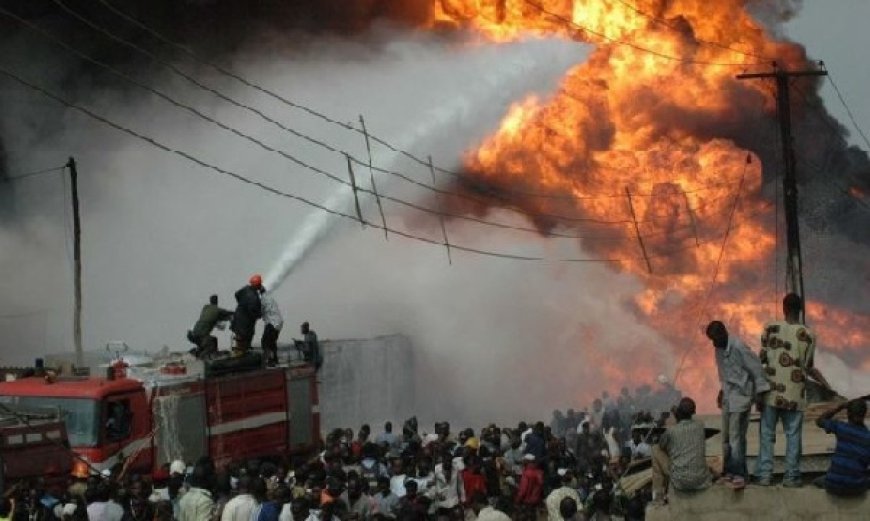Ghana is witnessing a disturbing rise in fire-related casualties, with the Ghana National Fire Service (GNFS) confirming a 33% increase in deaths and nearly a threefold rise in injuries across the country.
According to newly released statistics from the GNFS, the number of people who lost their lives to fire outbreaks rose sharply over the past year, while those injured during such incidents also spiked significantly, signaling a growing public safety crisis.
Deputy Chief Fire Officer Julius Kuunuor, in a press briefing, described the trend as “alarming and unacceptable,” stressing the urgent need for both citizens and institutions to prioritize fire prevention measures.
“We are seeing too many lives lost and people severely injured due to negligence, poor wiring systems, and lack of fire extinguishers,” he stated.
He further revealed that most of the fires originated in residential areas, marketplaces, and informal workshops — where poor adherence to safety protocols and overloaded electrical systems remain rampant.
In 2024 alone, over XXX fire incidents were reported (final figures pending), resulting in a 33% spike in fatalities and a 200%+ increase in injuries, compared to the same period last year. The causes of these incidents include electrical faults, unattended cooking, and the misuse of gas and flammable substances.
GNFS has launched a nationwide public education campaign to sensitize communities about fire safety. It is also urging property owners and business operators to install fire alarms, train staff on emergency response, and undergo regular inspections.
Fire experts say that while the GNFS continues to improve its response capabilities, the root of the problem lies in weak enforcement of building codes, limited access to safety equipment, and public apathy toward basic fire precautions.
As Ghana enters the dry season — typically associated with increased fire risk — authorities warn that without coordinated action, the death toll may continue to rise.
“Prevention is the best strategy. We can’t keep reacting to disasters. We must act now,” Mr. Kuunuor added.
The GNFS has called for stronger collaboration between government agencies, municipal assemblies, and the private sector to implement stricter regulations and provide communities with the tools needed to prevent these deadly fires.






















































































